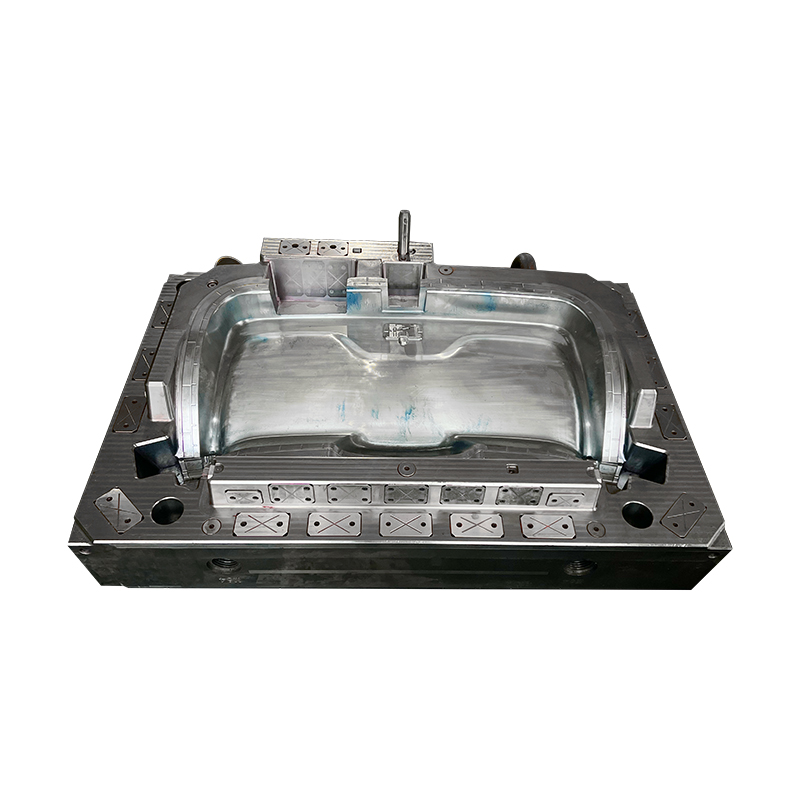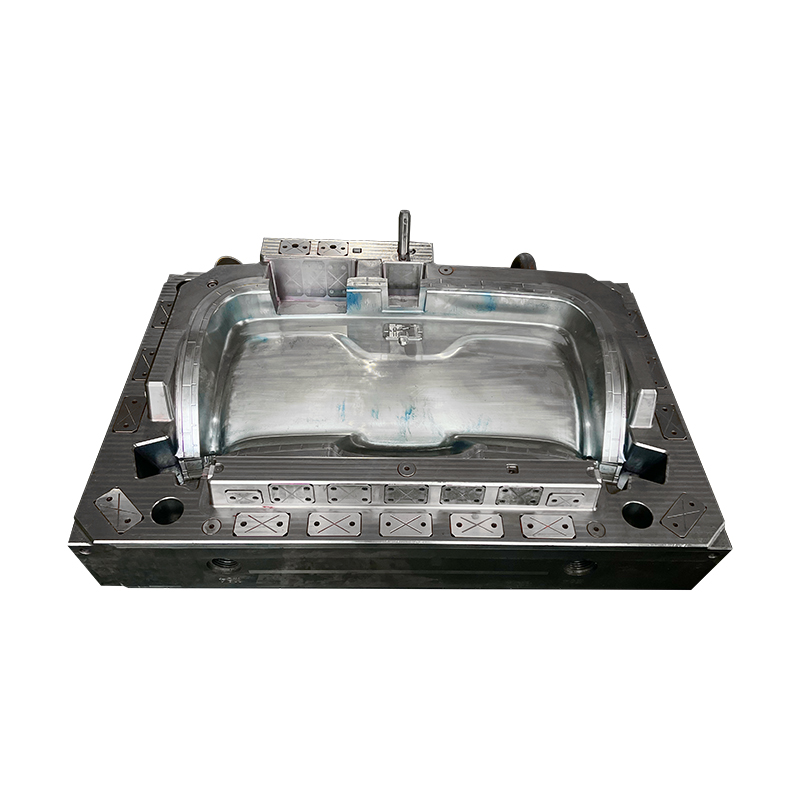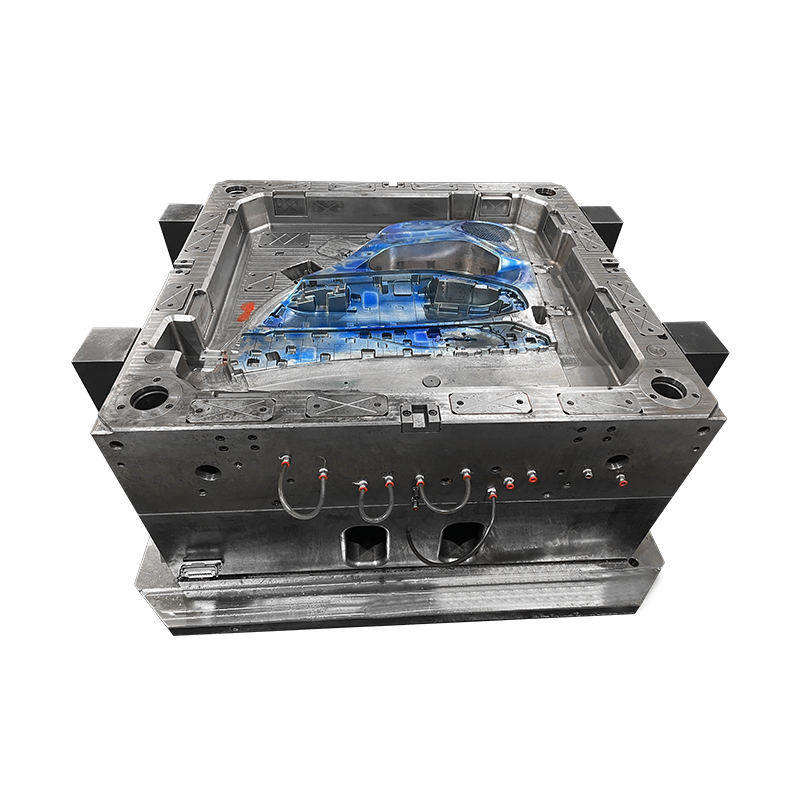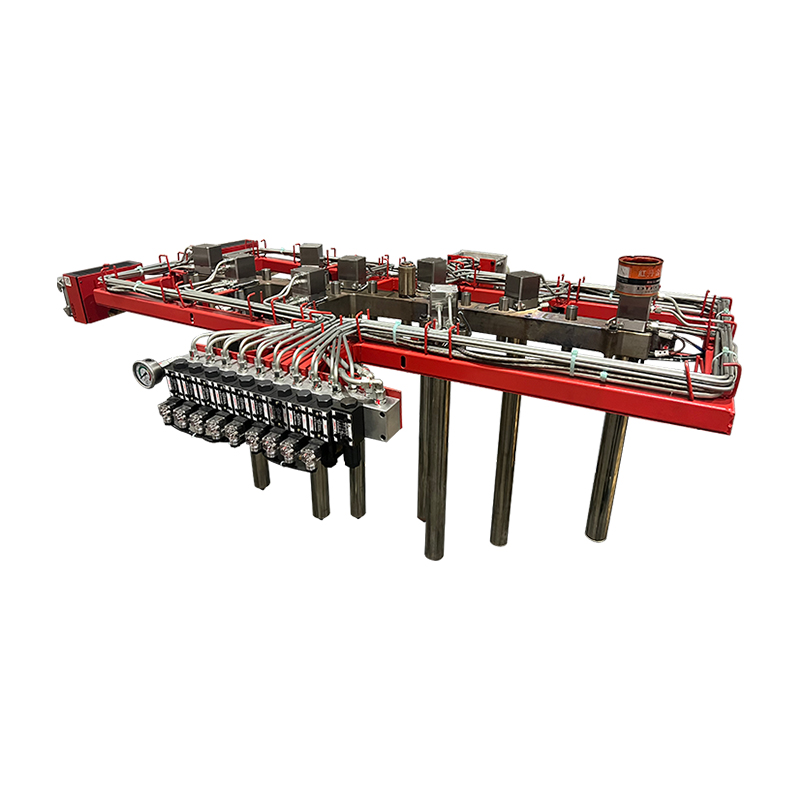
Customized Auto Parts Injection Mold
|
Mould Type |
Compression mould |
|
Mould Steel |
P20 / S50C / S45 |
|
Mould Cavity |
Single cavity / Multiple cavities / Multiple cavities with interchangeable inserts |
|
Heating System |
Oil heating / Electrical rods heating |
|
Ejection System |
Hydraulic eject with air assist / hydraulic pins |
|
Mould Cycle |
depends on mould steel, P20 could support around 300 thousand lifespans |
|
Lead Time |
56 days |
Liberal Mould specialises in composite mould and injection mould, we are capable of providing a one-off solution for our customers from mould development, design, and mould making to finished products according to our customer requirements.
The Customized Auto Parts Injection Mold employs a compression moulding technique, which is well-suited for producing high-quality automotive parts. Compression moulding involves heating the material until it becomes pliable and then placing it into a cavity where it is compressed to form the desired shape. This method is particularly effective for parts requiring a high degree of precision and uniformity.
Advantages of Compression Moulding:
High Precision: Compression moulding ensures that each part is produced with tight tolerances and consistent dimensions, which is crucial for automotive applications where parts must fit goodly.
Material Versatility: This method is compatible with a range of materials, including thermoplastics and thermosetting plastics, allowing for flexibility in part design and material choice.
Durability and Strength: Parts produced with compression moulding typically exhibit mechanical properties, making them ideal for automotive applications where strength and durability are essential.
Mould Steel:
P20 Steel:
Characteristics: P20 steel is a pre-hardened mold steel known for its nice machinability and uniform hardness. It is commonly used in the manufacturing of automotive injection molds due to its reliability and ease of processing.
Benefits:
High Wear Resistance: P20 steel offers nice resistance to wear and tear, extending the lifespan of the mold.
Uniform Hardness: The consistent hardness of P20 steel ensures that the mold maintains its shape and performance over time.
Ease of Machining: Its machinability allows for intricate designs and detailed features to be incorporated into the mold with precision.
S50C Steel:
Characteristics: S50C is a carbon steel known for its high strength and toughness. It is often used in applications requiring high mechanical properties and durability.
Benefits:
High Strength: S50C provides the strength needed for demanding automotive parts, ensuring that the mold can withstand the pressures and stresses of the manufacturing process.
Toughness: The toughness of S50C steel contributes to the overall durability of the mold, making it suitable for long-term use.
Cost-Effectiveness: Compared to some other high-strength steels, S50C offers a cost-effective solution without compromising on performance.
S45 Steel:
Characteristics: S45 is another carbon steel that is often used in mold making due to its good balance of strength, hardness, and machinability.
Benefits:
Balanced Properties: S45 provides a good balance between hardness and toughness, making it a versatile choice for various automotive parts.
Good Machinability: The steel's machinability allows for precise and efficient manufacturing of complex mold designs.
Reliability: S45 steel ensures reliable performance, which is essential for maintaining the quality and consistency of auto parts.
Customization and Flexibility
Tailored Solutions: The Customized Auto Parts Injection Mold is designed to meet specific requirements, ensuring that each mold is tailored to the exact needs of the automotive component being produced. This level of customization allows for the production of unique parts with precise specifications.
Design Capabilities: The mold's design capabilities are enhanced by its ability to accommodate various features and geometries. This flexibility allows for the creation of complex parts with intricate details, meeting the diverse demands of the automotive industry.
Material Compatibility: The ability to use different steels and materials in the mold's construction ensures that it can handle a wide range of automotive parts, from small precision components to larger, more robust parts.











